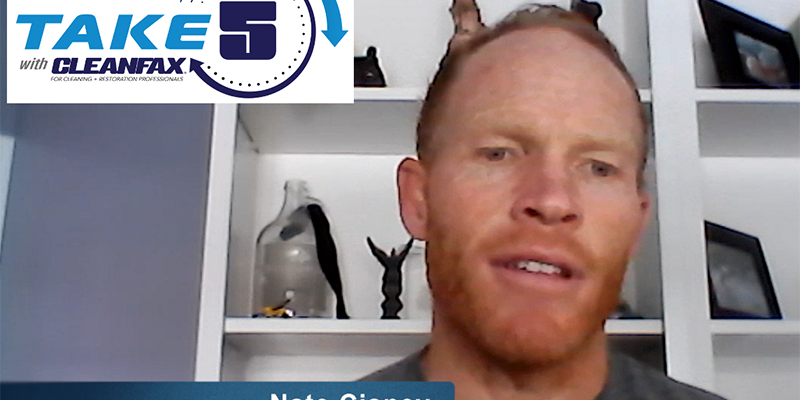The Art of Negotiating With Adjusters

In an old Allstate Insurance Company textbook on negotiations from the 1950s, I found this paragraph:
“Negotiating is perhaps the most challenging and, to many, the most fascinating of all activities in the handling of claims. The skillful negotiator looks back on successful negotiations with a great deal of satisfaction and pleasure.”
The text goes on to say:“Remember, there are no hard and fast rules — two entirely different approaches may achieve equally successful results. In fact, the principal test of the effectiveness of your negotiating skill, regardless of the approach or technique you use, is the settlement result achieved.”
As you can see, the subject of “negotiation” is definitely an integral part of training adjusters. But as a restoration contractor, you may be of the opinion that this contradicts your experiences in the field. I often hear statements from contractors, such as:
- “The adjuster simply said, ‘This is what I’m paying,’ and he walked away.”
- “That adjuster told me that there’d be a flash freeze at the equator before they’d pay for more than three day’s drying.”
- “The adjuster won’t return my calls.”
- “Not only do adjusters not want to negotiate, they won’t even talk to me.”
Believe it or not, some of the above behavior may be part of an adjuster’s negotiation strategy. I’d like to discuss three basic techniques used by adjusters (whether deliberate or subconscious) and show you some counter techniques to help you overcome such an impasse.
Let me also preface the rest of this article by saying that, in discussing the adjusters who’ll behave this way, they are probably not adjusters with whom you have business relationships.
They are adjusters who could care less that you are part of the so-called “solution” in fulfilling the insurance company promise to a property owner. They are adjusters who may not respect you as a certified professional and, figuratively speaking, throw their weight around because they control the money that is paid on a claim.
You may not want to continue business with them unless they change their attitude. But, in the meantime, let me show you how to play hardball to get what you need from them.
Adjuster technique #1
“Act like nothing is negotiable.”
Regardless of whether an adjuster will ever admit it to you, everything is negotiable. Adjusters know this. They may not want to negotiate with you personally, but they can’t deny the principle.
Just consider the cases that go to trial when an insurance company tries to deny coverage or minimize damages. They may spend hundreds of thousands of dollars on litigation costs and still lose a sizable judgment. Do you think the next time they encounter a similar claim situation they won’t be willing to negotiate? In fact, when they encounter any claim situation that escalates to trial, they know there’s a chance they may lose. Even when they’re willing to defend at trial, they know they might lose. And that’s why insurance companies train adjusters in the art of negotiation.
Many times in my ethics workshops for adjusters, I’ll ask attendees whether they’ve ever been instructed by a superior to pay a claim they believed was not covered by the policy. In every workshop, virtually every hand goes up. What this should tell any adjuster is that even when there appears to be no coverage, there may be a reason why management wants to pay a claim to eliminate the exposure.
The insurance industry clearly knows that making concessions is a necessary component of negotiation which, in itself, is a necessary component of any claims process.
Counter-action
Force the difficult adjuster to sit down, whether in person or by telephone, to review and discuss your differences. You can appeal to the property owner and their agent to sit in on the conference call. Do it from the agent’s office with the adjuster on speaker telephone. The agent will facilitate if he thinks his policyholder may be exposed to a mechanic’s lien because the adjuster is unreasonably refusing to discuss and negotiate.
Adjuster technique #2
“Make an offer well below what’s been authorized.”
In having negotiated more than 10,000 settlements and watched some of the best engage in negotiations, including insurance company attorneys, I have seen adjusters start negotiating at 50 to 75 percent of the authority they had. Lawyers are even more stringent. I’ve regularly seen them start negotiations by offering 10 percent or less of what they actually had available to settle a case.
Every adjuster should know that negotiation is likely to happen on any given claim. And most adjusters believe they have done a good job if negotiations save 10 percent of their authority.
So, after you reject his initial offer and make a counter demand, he can probably still increase the dollar amount. However, he will strongly resist offering you his full authorization. Adjusters hate to go back to a superior to request a higher amount because they were unable to settle a case for the initial authority extended. But it does occasionally happen, particularly on larger losses.
Counter-action
Don’t be offended by a low-ball offer from an adjuster. Just make a counter demand that is a few points below your initial demand. A bio-hazard mitigation contractor once told me an adjuster insisted lowering his hourly rate from $225 to $85 because her estimating software didn’t really have a comparable line item. His first reaction was outrage at her absurd valuation. But then he realized she might be initiating a negotiation. He countered with the lowest he’d go, which was $195, and she accepted that immediately. He was satisfied with that concession and the adjuster wrote it up, highlighting her success in shaving $30 off the hourly rate.
Adjuster technique #3
“Everything has to be approved by higher-ups.”
Whether he is an independent adjuster or a staff adjuster, he knows what and how much he can concede on a claim. Technically speaking, anything the adjuster offers is subject to final approval by a superior, particularly if it’s over his authority. But many superiors simply rubber stamp whatever the field adjuster recommends. After all, the field adjuster is the eyes and ears of the superior who sits at a desk, often thousands of miles away.
For example, suppose you have a staff adjuster who operates with an authority level of up to $10,000 on any claim. He can settle a claim for up to that amount and often carries checks he can sign and leave with the property owner and contractor. Let’s say you are the contractor mitigating the loss that is worth approximately $5,000, but a dispute has arisen over whether a portion of your estimate totaling $500 was necessary. This adjuster might say, “If I make that concession, my superiors would be all over me.” Or he might say, “I don’t have authority to allow more than $4,500 on this loss.” He could say, “There’s no way I can allow that concession because…”
Given his stated authority, he could actually make that concession as long as he documents it properly in a manner that satisfies his handling requirements. He just doesn’t want to… not for you, anyway. He’s using those statements to defend himself or deflect your hostility or demands to some nebulous superior sitting at a desk miles away who, in reality, just wants him to justify whatever he recommends.
Counter-action
Don’t be dissuaded. Continue to explain your position and try to educate both the adjuster and property owner on the process and your reasoning. It will benefit the property owner and — ultimately — the insurance company. He’ll probably make a concession to get you to stop talking. Just don’t be hostile. Be diplomatic and professional at all times. Your perceived disposition should be that you are concerned that the property damages are resolved correctly and that the insurance company’s interests are protected as well.
Everyone wins.
Peter Crosa has been a licensed independent adjuster for more than 35 years, handling insurance claims throughout the United States and Latin America. Since 2000, he has traveled across the country conducting seminars and speeches on the topic of marketing restoration services to the insurance claims industry. He is author of the 2013/2014 Restoration Contractors Guide to Insurance Repair. Visit his website at www.SSHCA.net or e-mail him at [email protected] to ask a question.












